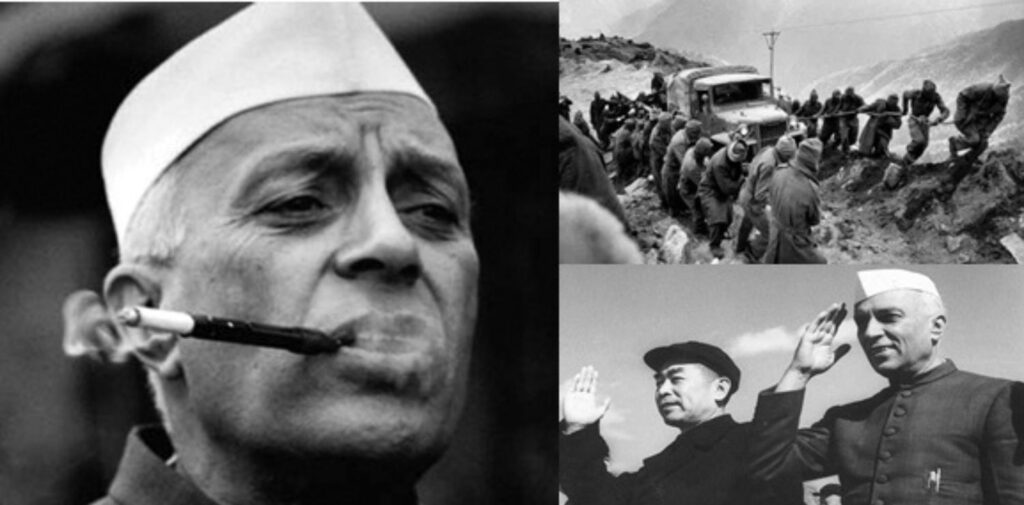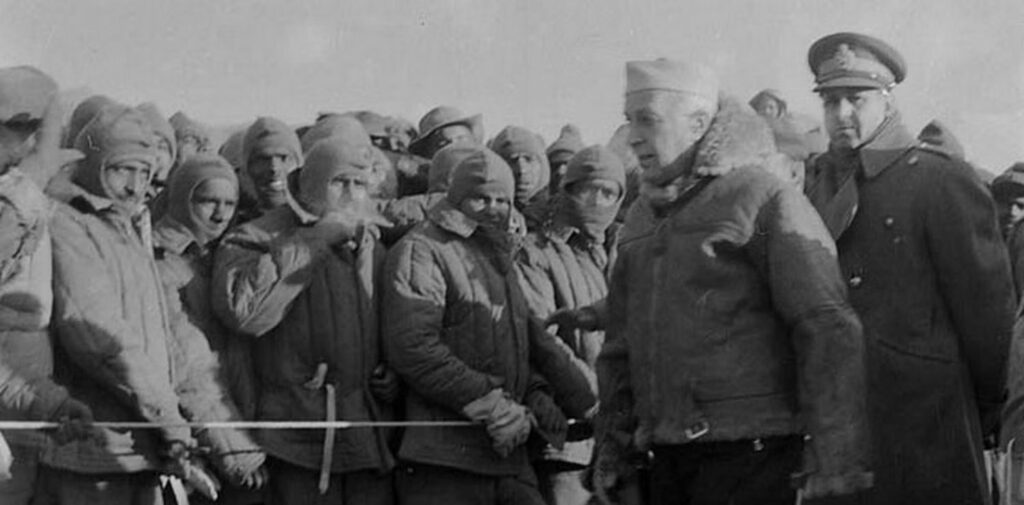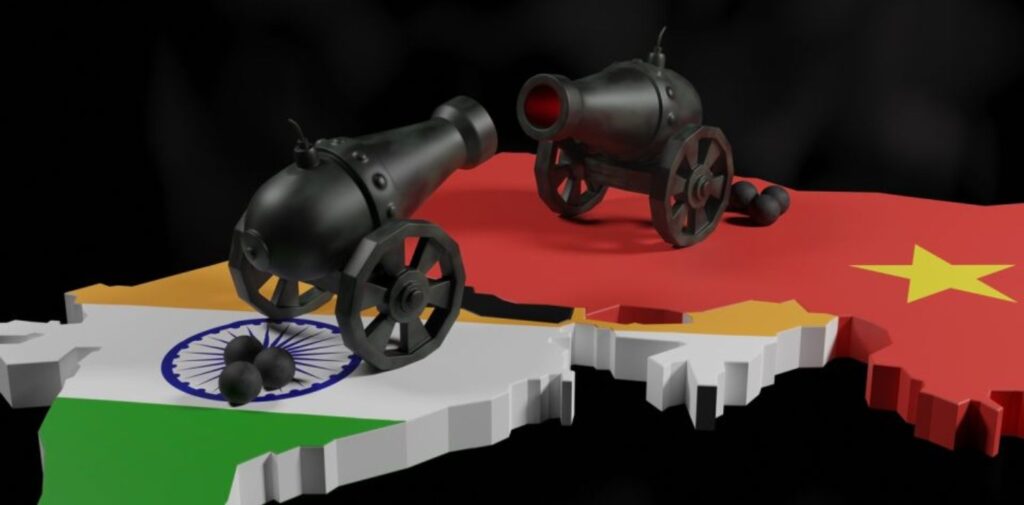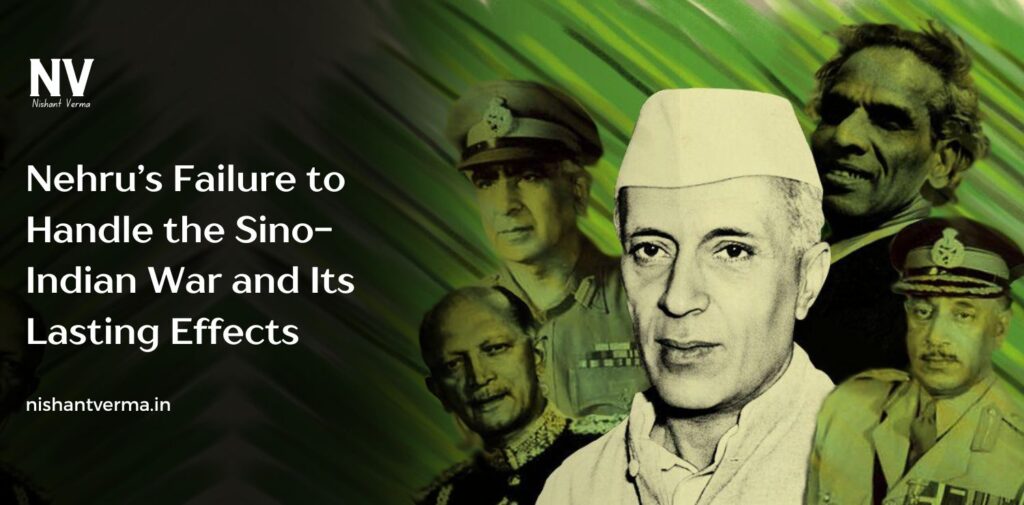In the history of India, few events have had as significant and far-reaching an impact as the Sino-Indian War of 1962. This conflict, which was fought between India and China, had deep implications not just for the two countries but for the entire region and the world. The war’s outcome exposed the weaknesses in India’s defense strategy and leadership, especially the failure of Jawaharlal Nehru, the first Prime Minister of independent India, to properly manage the crisis.
In this article, we’ll take a closer look at Nehru’s handling of the war, how it led to India’s defeat, and the long-term consequences that are still felt today. By the end, you’ll understand why this period of Indian history remains so important in shaping the country’s political and strategic thinking.
The Lead-Up to the War
Before the war in 1962, India and China had relatively friendly relations. Both countries had recently gained independence, with China under the leadership of Mao Zedong and India under Nehru. The two leaders shared a common interest in anti-colonialism and were both members of the Non-Aligned Movement, which sought to stay neutral in the Cold War rivalry between the United States and the Soviet Union.
However, the peace between India and China started to sour because of border disputes. The regions of Aksai Chin and Arunachal Pradesh were the main points of contention. Aksai Chin, which India claimed as part of its Jammu and Kashmir region, was strategically important for China as it connected Tibet with Xinjiang, two of its most sensitive regions. Arunachal Pradesh, on the other hand, was claimed by China as part of Tibet.
These border disputes, combined with growing tensions over India’s support for Tibet and the ongoing struggle for influence in Asia, eventually led to a military conflict. By 1962, both countries had been building up forces along their border, and any small incident could trigger a war.

Nehru’s Oversight and Mismanagement
Jawaharlal Nehru’s failure to properly handle the Sino-Indian conflict has been criticized by historians and analysts. There were several key reasons why Nehru’s approach to the war was flawed:
1. Underestimating China’s Intentions
Nehru and his advisers underestimated China’s intentions and military capabilities. Nehru believed that China, after its revolution, would be focused more on domestic issues rather than expanding its influence through military means. This misreading of China’s intentions led India to be unprepared for a conflict.
Nehru also thought that the relationship between India and China would continue to be friendly, even as tensions over the border grew. In hindsight, it’s clear that China was determined to secure its territorial claims, and India’s attitude of appeasement and passive diplomacy was not enough to prevent war.
2. Poor Defense Planning
Nehru’s government had a strong belief in peaceful coexistence and diplomacy, but when it came to defense, India was ill-prepared. The country’s military was not adequately equipped for a confrontation with China. Despite warnings from military experts, Nehru failed to modernize India’s defense infrastructure and did not prioritize strengthening the army along the border.
India’s military strategy was based on the idea of a defensive war, but this was not suitable for the terrain and circumstances of the Sino-Indian border. The Indian Army lacked sufficient training, equipment, and high-altitude warfare capabilities, especially in the rugged mountains of the Himalayas.
3. Misguided Trust in Diplomacy
Nehru was a firm believer in diplomacy and non-violence, values he had carried throughout his political career. However, he failed to understand that diplomacy alone wouldn’t be enough to deter China’s aggression. Instead of preparing for military conflict, Nehru placed too much trust in negotiations and failed to anticipate China’s military actions. By the time India realized that China was serious about war, it was too late.

The Outbreak of the War
In October 1962, China launched a sudden and massive attack on India, catching the country off guard. Chinese troops made significant advances into Indian territory in both Aksai Chin and Arunachal Pradesh. The Indian Army, unprepared for the scale of the attack, suffered heavy losses. Indian forces were pushed back, and the Chinese quickly gained control of large portions of the disputed areas.
Despite the heavy losses, India’s political leadership, including Nehru, continued to show reluctance to escalate the conflict. Nehru initially hoped for a quick resolution through diplomacy, but China had no intention of negotiating. By November 1962, after significant Chinese advances, China declared a ceasefire, but the damage had already been done.
The Aftermath of the War
The Sino-Indian War of 1962 had serious consequences for both India and Nehru’s political career. The most immediate effect was the loss of territory. India lost control over Aksai Chin, which is still controlled by China to this day, and faced a humiliating defeat in Arunachal Pradesh. This defeat damaged India’s reputation internationally and left a sense of insecurity about the country’s defense capabilities.
On a political level, Nehru’s leadership faced severe criticism. He had been seen as one of the most powerful figures in post-independence India, but the war exposed his failure to adequately address the country’s security needs. The public’s trust in his leadership was shaken, and many questioned his ability to lead India during a time of crisis. Nehru’s foreign policy of non-alignment was also questioned, as it had failed to prevent the war with China.

Long-Term Impact on India
The long-term consequences of the Sino-Indian War were felt in several ways, both within India and in its relationship with China.
1. Shift in Defense Strategy
The war highlighted India’s vulnerability, and in the years that followed, India took several steps to strengthen its defense infrastructure. India shifted from a defensive military strategy to one focused on improving its preparedness for future conflicts. The Indian military also began to modernize its equipment, including the development of nuclear weapons, to ensure that the country would never again be caught unprepared.
2. Changing Foreign Policy
The defeat in the Sino-Indian War forced India to rethink its foreign policy. Nehru’s idealism about peace and non-alignment gave way to a more pragmatic approach to international relations. India sought to strengthen ties with the Soviet Union, which provided military support and diplomatic backing during and after the war. Relations with the United States, which had been lukewarm, also began to shift as India realized the importance of balancing relationships with major global powers.
3. Deepening Distrust with China
The Sino-Indian War had a lasting impact on India’s relationship with China. Even after the war, tensions remained high, and both countries continued to view each other with suspicion. The border dispute between India and China remains unresolved, with occasional flare-ups and military confrontations even in recent years.
Conclusion: the Sino-Indian War
Jawaharlal Nehru’s failure to effectively handle the Sino-Indian War had a profound impact on India, both in the short term and in the long run. The war exposed serious flaws in India’s defense strategy and leadership, and the defeat had lasting consequences on India’s foreign policy, military preparedness, and relations with China. While Nehru’s vision for a peaceful and non-aligned India was admirable, the failure to adequately address security concerns during the 1962 war serves as a reminder of the importance of being prepared for any eventuality in international relations.
Nehru’s leadership, while deeply respected, also shows that even the most well-meaning policies can fail when not backed by practical and effective strategies. The legacy of the Sino-Indian War continues to shape India’s approach to defense and diplomacy, with a strong emphasis on readiness and resilience in the face of future challenges.



